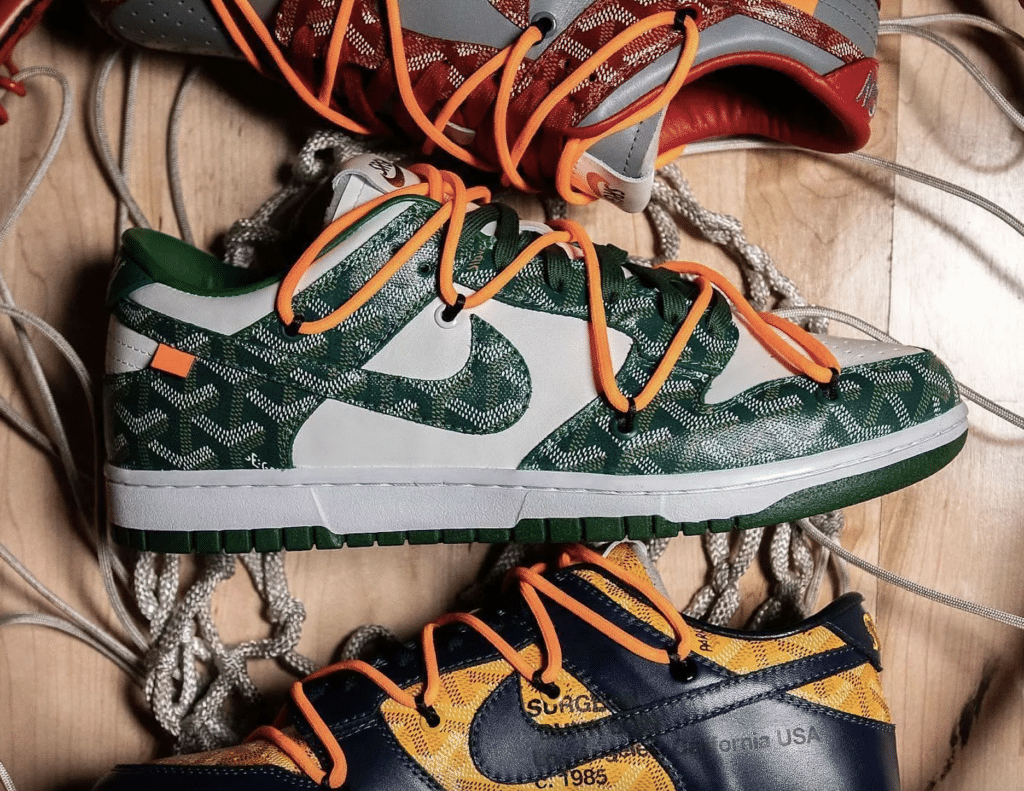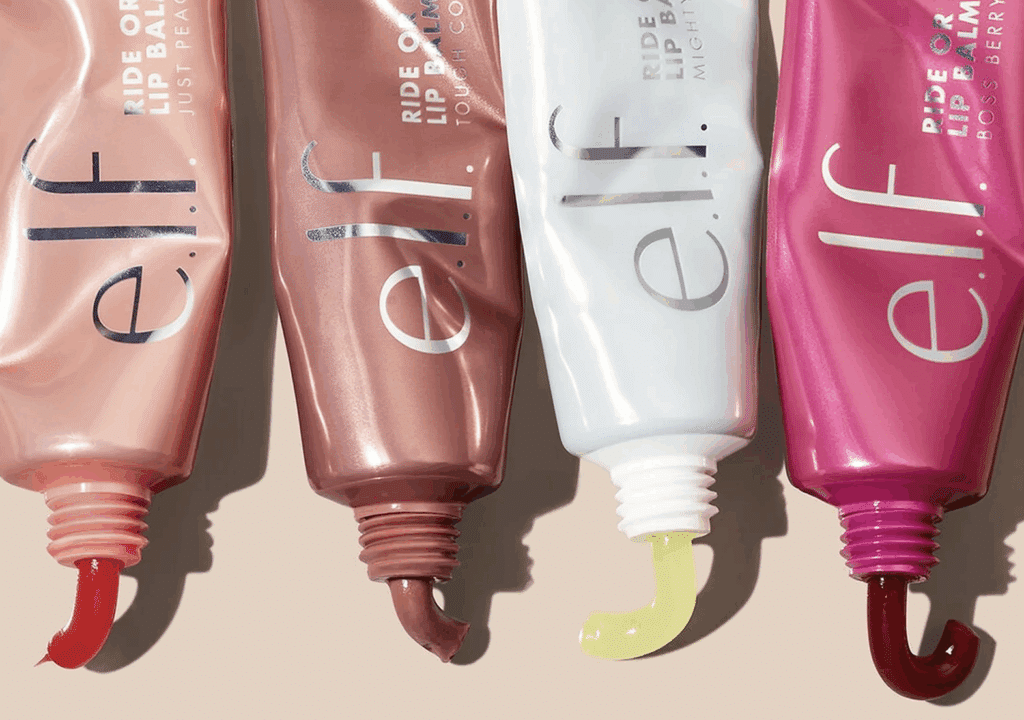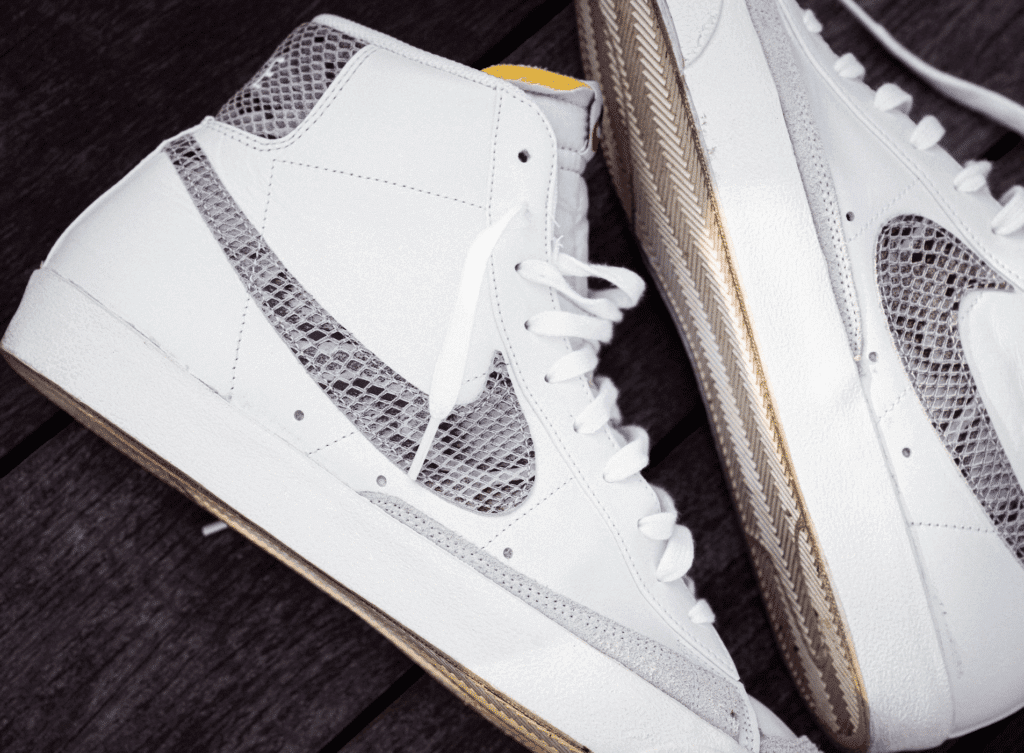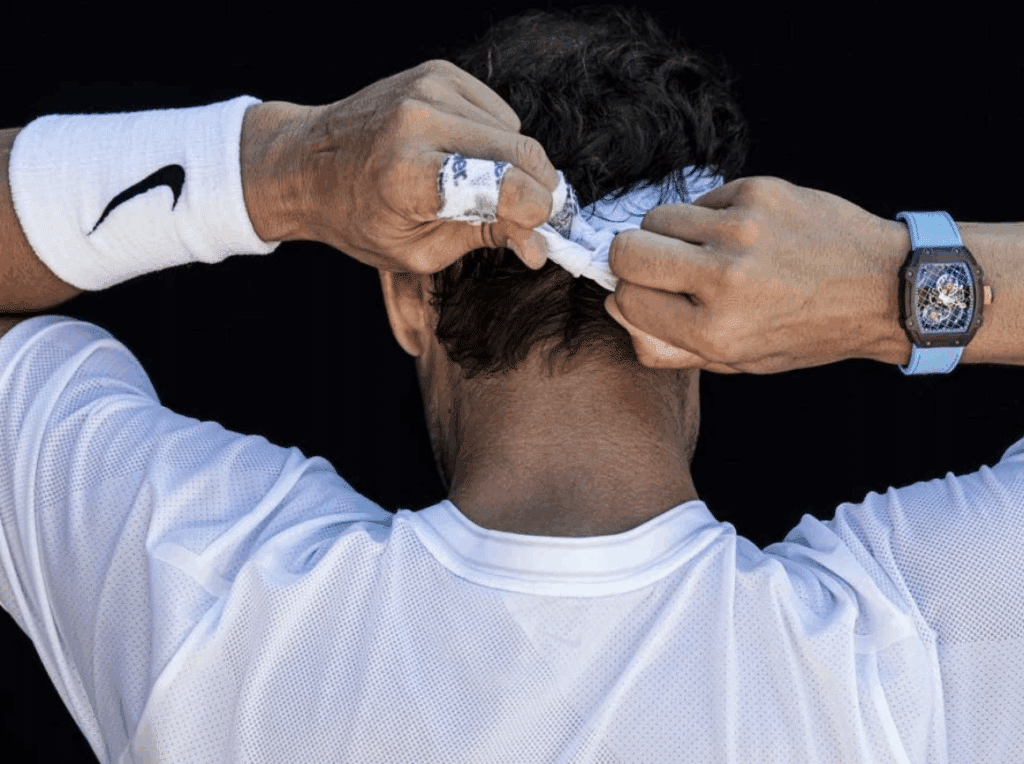The Shoe Surgeon’s customization business became the target of two lawsuits in 2024, with Goyard filing suit against it in June and Nike following up less than a month later with a headline-making complaint of its own. The French luxury goods brand and the American sportswear giant wage trademark-centric claims against the Shoe Surgeon and its founder Dominic Ciambrone (collectively, the “Shoe Surgeon” or “defendants”) in their respective complaints, alleging that by making authorized use of their well-known marks, the Shoe Surgeon is likely to confuse consumers and damage their brands. While Goyard’s lawsuit appears to be winding down, with a settlement in sight, the case waged by Nike is still underway.
Goyard v. the Shoe Surgeon
Goyard and the Shoe Surgeon appear to have resolved their clash over customized footwear. In the notice of settlement that it filed with a federal court in California on December 20, the French luxury goods brand revealed that it has reached a settlement to the trademark infringement, false designation of origin, and unfair competition claims it has waged against the sneaker and apparel customizer.
The Background: Goyard filed suit against the Shoe Surgeon in June, alleging in a complaint with the U.S. District Court for the Central District of California that the Shoe Surgeon is on the hook for an array of trademark causes of action as a result of its sale of footwear, apparel, and accessories that it markets as being made with “authentic” Goyard canvas. The problem, according to Goyard, is that it has “not verified [the trademark-bearing canvas at issue] as genuine.”
Given that the Shoe Surgeon’s sneakers and other offerings contain trademarks that are “identical, substantially indistinguishable, or confusingly similar to the Goyard marks,” Goyard claimed that consumers are likely to be confused as to the nature/source of the goods “at the time of initial interest, sale, and/or in the post-sale setting.” The likelihood of confusion is compounded, per Goyard, by the defendants’ “legitimate collaborations with other famous brands,” which could “suggest to consumers that the defendants may have a legitimate collaboration with Goyard, when they do not.”

With the foregoing in mind, Goyard set out claims of trademark infringement, false designation of origin, and unfair competition, and is seeking preliminary and permanent injunctive relief, as well as monetary damages.
The Shoe Surgeon’s Response: In response to Goyard’s suit, the Shoe Surgeon presented several defenses. It admitted that Goyard did not grant it an express license to use Goyard intellectual property, including its name and trademark-bearing textiles, but argued that no such license or permission is required for it to “truthfully claim to customize shoes with ‘authentic’ Goyard canvas material,” particularly as “the clients for whom [it has] customized shoes with authentic Goyard fabric and others viewing those shoes are not confused about any connection with Goyard.”
Among other things, the sneaker customizer maintained that its bespoke services, aimed at individual clients, are not likely to confuse consumers about whether it has any affiliation with Goyard. Beyond that, the Shoe Surgeon asserted that its use of Goyard’s materials is artistic, as it enhances the aesthetic of client-owned shoes without competing with Goyard’s products, and is not commercial in nature.
Still yet, the defendants argued they they should be shielded from the claims in Goyard’s lawsuit since the “accused customization services [are] performed using authentic Goyard bags purchased directly from Goyard” and thus, “amount to a resale and/or use by the first purchaser.”
Nike v. the Shoe Surgeon
Despite a pending settlement with Goyard, the lawsuit that Nike waged against the Shoe Surgeon, which centers on the trade dress of its “iconic” Air Jordan 1, Air Force 1, Air Jordan 3, and Air Jordan 4 silhouettes, is still playing out before a federal court in New York.
The Background: In the case that it lodged, Nike accuses the Shoe Surgeon of constructing “a multifaceted retail empire built around the unauthorized use of [its] trademark rights and the associated goodwill that [it has] spent decades accruing.” Nike asserts in the complaint, which it filed with the U.S. District Court for the Southern District of New York in July, that the defendants have engaged in an “egregious display of widespread infringement that has even crossed into willful counterfeiting of iconic Nike products.”
Specifically, Nike claims that the Shoe Surgeon’s business is built around customized footwear, which the defendants either create “from scratch” or by “modify[ing] and offer[ing] for sale large quantities of [otherwise authentic] Nike-branded products.” Additionally, the defendants enter into “Nike-focused collaborations with other rights holders using Nike’s intellectual property, [and] ink digital rights agreements based on Nike trademarks,” Nike maintains.

“To make matters worse,” Nike argues that the defendants “are engaging in all of this behavior while falsely leading consumers to believe that Nike is affiliated with their businesses or has otherwise authorized their conduct.” In reality, Nike states that it “has not authorized any of [the] complained-of conduct, and this conduct – coupled with the false air of credibility the defendants are intentionally creating – is likely to cause and is already causing confusion in the marketplace that the parties are associated, when they are not.”
As a result, Nike sets out claims of direct and contributory trademark infringement, counterfeiting, unfair competition and false designation of origin, and trademark dilution.
The Shoe Surgeon’s Response: The Shoe Surgeon and Chambrone filed a lengthy answer and counterclaims in November, in which they highlight a history of collaborations with Nike and allege wrongdoing on the part of the Swoosh. The Shoe Surgeon alleges that Nike not only commissioned its services for high-profile projects, but also used their expertise to shape its own customization ventures, including the launch of its “Nike By You” service, all while failing to pay for their services.
“Indeed, starting back in 2017, Nike fostered a relationship with the Shoe Surgeon to find out what had made this ‘humble self-taught cobbler’ into the pioneering shoe-customizer and go-to artist for celebrities,” the Shoe Surgeon asserts in its filing. At the same time, the Shoe Surgeon alleges that that Nike “reached out to [it for] over a dozen projects and collaborations over the last seven years,” including with “requests for which Nike indicated it would pay but ultimately failed to pay.” Nike “strung the Shoe Surgeon along not only as to payments that never came,” the company contends, but also as to “a potential relationship for future projects between Nike and the defendants.”
In addition to lodging an unjust enrichment cause of action against Nike as a result of such alleged payment failures, the Shoe Surgeon sets out a defamation and/or trade libel cause of action against Nike after the sportswear co. “launched a public smear campaign against it, falsely accusing the company of manufacturing counterfeit products.” Still yet, the Shoe Surgeon is seeking a declaratory judgment of invalidity/cancellation for functionality for all thirteen of the trade dress registrations that Nike relies on in its suit.
The case is Nike, Inc. v. S2, Inc. d/b/a The Shoe Surgeon, et al., 1:24-cv-05307 (SDNY).














